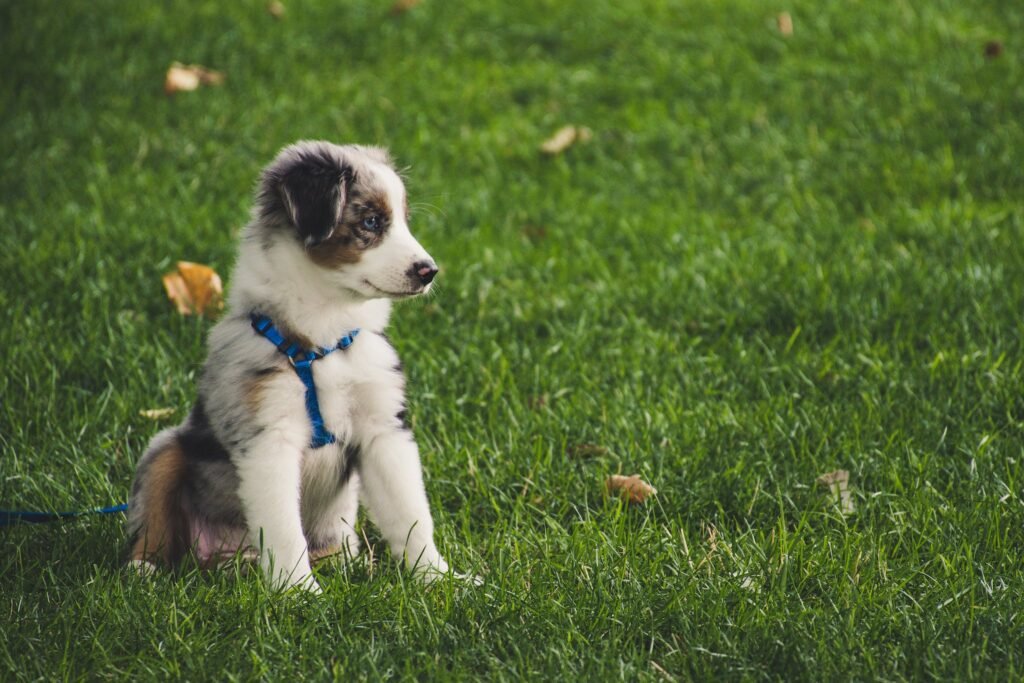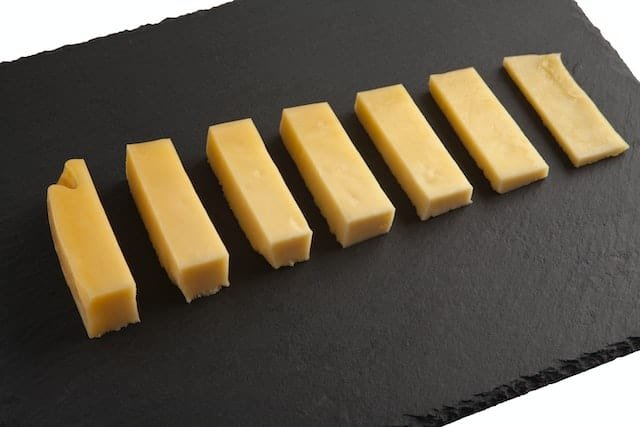How to Make Liver Water for Puppies: A Step-by-Step Guide

There are some affiliate links below, but they are all products I highly recommend. For more info, view my disclosure here.
Liver water is a nutritious and easy-to-digest supplement that can be added to your puppy’s diet to promote healthy growth and development. In this article, we’ll provide you with a step-by-step guide on how to make liver water for puppies.
Liver water is made by simmering liver in water until the liver is cooked through and the water is infused with its nutrients. The resulting liquid can be added to your puppy’s food or given to them as a drink. Liver water is rich in vitamins and minerals that are essential for your puppy’s health, including iron, zinc, and vitamin A.
As a puppy owner, it’s important to provide your puppy with a balanced and nutritious diet. Adding liver water to your puppy’s diet can help ensure that they are getting the nutrients they need to grow and thrive. In the following sections, we’ll provide you with a detailed guide on how to make liver water for puppies, as well as tips on how to incorporate it into your puppy’s diet.
Understanding the Benefits of Liver Water
If you are a puppy owner, you want to ensure that your pup is healthy and happy. One way to do this is by giving them liver water. Liver water is made by boiling chicken or beef liver in water, then straining the liquid to create a nutrient-rich broth.
Liver water is a powerful source of nutrients that can help boost your puppy’s immune system, thanks to the high concentration of vitamin A and B vitamins. These essential nutrients are crucial for good health, and liver water provides a convenient and tasty way to ensure your puppy is getting enough of them.
In addition to vitamins, liver water is also an excellent source of amino acids. These building blocks of protein are essential for maintaining healthy muscles, bones, and organs. By giving your puppy liver water, you are providing them with the essential nutrients they need to grow and thrive.
Whether you choose chicken livers or beef liver, liver water is an easy and affordable way to give your puppy the nutrients they need for good health.

Preparation of Liver Water
If you’re looking for a nutrient-dense drink for your puppy, liver water is a great choice. Here’s how to prepare it.
Choosing the Right Liver
First, choose a large piece of beef liver. Make sure it’s fresh and of good quality.
Cooking and Cooling Process
- Rinse the liver under cool water and pat it dry with a paper towel.
- Cut the liver into small pieces and place them in a large pot.
- Add enough water to cover the liver and bring it to a boil.
- Reduce the heat to low and let it simmer for 20 minutes.
- Remove the pot from the heat and let it cool to room temperature.
- Once cooled, pour the liver and water mixture into a blender and blend until smooth.
- Strain the mixture through a fine mesh strainer or cheesecloth to remove any solids.
- Pour the liver water into an ice cube tray and freeze.
Storing the Liver Water
Once the liver water is frozen, remove the cubes from the tray and store them in a plastic bag in the freezer. You can give your puppy one or two cubes per day as a treat or mix them into their food for added nutrition.
Liver water is a great way to provide your puppy with essential vitamins and minerals. It’s easy to make and can be stored in the freezer for future use. Give it a try and see the benefits for yourself!
Feeding Liver Water to Puppies
Liver water is a nutrient-rich drink that is beneficial for the growth and development of puppies. Here are some guidelines to follow when feeding liver water to your puppies.
Determining the Right Amount
The amount of liver water to feed your puppies depends on their age, size, and weight. I absolutely recommend reviewing with your vet to meet your specific puppy’s needs. As a general guideline, for newborn puppies, start with a small amount of water, such as a drop or two, mixed with goat’s milk or mother’s milk. As the puppies grow, gradually increase the amount of liver water.
For small dogs, feed a little bit of water at a time, while for larger dogs, you can offer a larger quantity. The right amount of beef liver to use in the liver water depends on the size of the litter.
Schedule and Frequency
During the first week of life, puppies need to be fed every two hours. You can use a tube or bottle feeding method to feed the puppies. Once the puppies are a few weeks of age, you can start introducing liver water into their diet.
Offer liver water to the puppies a couple of times a day, gradually increasing the frequency as they get older. You can mix a little bit of Pedialyte or a drop of Karo syrup into the liver water to make it more palatable for the puppies.
In summary, liver water is a nutrient-rich drink that can benefit the growth and development of puppies. It is important to determine the right amount of liver water to feed your puppies based on their size and age. You should also establish a feeding schedule and frequency that works for your puppies.
Potential Risks and Precautions
When it comes to making liver water for puppies, there are a few potential risks and precautions to keep in mind. While liver is a nutritious ingredient that can benefit your puppy’s health, it’s important to use it in moderation and with care to avoid any negative consequences.
Excess Vitamin A
Liver is a rich source of vitamin A, which is essential for your puppy’s growth and development. However, too much vitamin A can be toxic and lead to serious health issues such as liver damage and even death. It’s important to use liver water as a supplement to your puppy’s regular diet and not as a replacement for it.
Bacterial Infections
Raw liver can contain harmful bacteria such as E. coli and Salmonella, which can cause serious infections in puppies. To avoid this, it’s important to handle and prepare the liver properly. Make sure to wash your hands and any surfaces or utensils that come into contact with the liver thoroughly before and after handling it. Cook the liver to an internal temperature of at least 165°F to kill any harmful bacteria.
Digestive System and Intestinal Parasites
Puppies have delicate digestive systems that are still developing, and consuming too much liver can cause digestive upset such as diarrhea and vomiting. Additionally, liver can contain parasites such as flukes and tapeworms, which can cause intestinal issues and even lead to puppy syndrome or fading puppies. It’s important to use liver water in moderation and to consult with your veterinarian about the appropriate amount for your puppy’s age and weight.
Copper Toxicity
Liver is also a rich source of copper, which is an essential mineral for your puppy’s health. However, too much copper can be toxic and lead to serious health issues such as liver damage. It’s important to use liver water as a supplement to your puppy’s regular diet and not as a replacement for it.
Emergency Care
If your puppy experiences any negative symptoms after consuming liver water, such as vomiting, diarrhea, or lethargy, seek emergency veterinary care immediately. These symptoms could be a sign of a serious health issue and require prompt medical attention.
By following these precautions and using liver water in moderation, you can provide your puppy with a nutritious supplement to their regular diet without putting their health at risk.
Alternative Nutritional Options for Puppies
When it comes to feeding your Bedlington Terrier puppy, there are a variety of nutritional options available. While high-quality dog food is always a safe choice, there are also alternative options that can provide your puppy with the necessary nutrients for optimal growth and health.
One alternative option is to incorporate muscle meat into your puppy’s diet. Muscle meat is a great source of protein, which is essential for building and repairing your puppy’s muscles. You can also add liver treats to your puppy’s diet for an extra boost of vitamins and minerals.
If your puppy has special dietary needs, such as a sensitivity to certain ingredients, there are special diets available that cater to these needs. Be sure to consult with your veterinarian to find the best option for your puppy.
Another alternative option is to incorporate olive oil into your dog’s diet. Olive oil is rich in healthy fats that can help promote a shiny coat and healthy skin. However, it is important to not overdo it with the olive oil as it is high in calories.
For those who prefer a raw dog food diet, there are raw dog food suppliers that provide high-quality food that can provide your puppy with all the necessary nutrients they need. However, it is important to do your research and ensure that the supplier is reputable and provides safe and balanced meals.
In summary, while high-quality dog food is always a safe choice, there are also alternative nutritional options available for your Bedlington Terrier puppy. Incorporating muscle meat, liver treats, special diets, olive oil, or raw dog food can provide your puppy with the necessary nutrients for optimal growth and health






